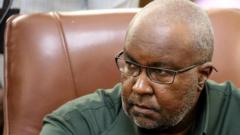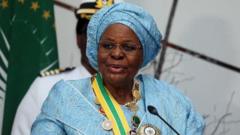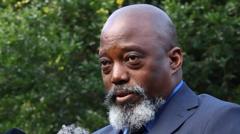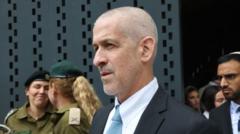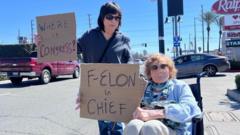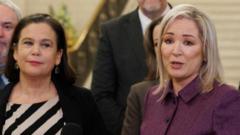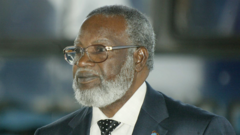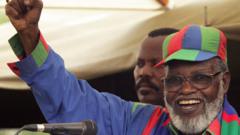In a landmark moment for Namibia, Netumbo Nandi-Ndaitwah of the South West Africa People’s Organisation (Swapo) has been elected as the country's first female president amidst contested election results. Nandi-Ndaitwah, who has held the position of vice-president since February, was declared the winner with over 57% of the votes. However, her closest rival, Panduleni Itula of the Independent Patriots for Change (IPC), has rejected the outcome, citing serious electoral malpractice amid logistical issues and a three-day polling extension in certain areas.
Namibia's Historic Election: First Female President Amidst Disputes
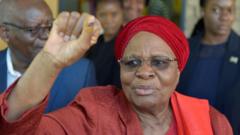
Namibia's Historic Election: First Female President Amidst Disputes
Netumbo Nandi-Ndaitwah claims victory in a controversial vote, escalating tensions with opposition parties.
The announcement of results led to a boycott by several opposition parties, as Itula voiced his concerns about the integrity of the electoral process. Despite this, Nandi-Ndaitwah emphasized a desire for peace and stability following the electoral commission's declaration. She joins an elite group of female leaders in Africa, with Tanzania's Samia Suluhu Hassan being the only other female head of state on the continent.
Itula, a trained dentist and the IPC leader, displayed considerable political appeal in the previous election by significantly reducing Swapo’s dominance from 87% in 2014 to 56% in 2019. In light of the current political climate, the IPC has vowed to challenge the election results in court and has urged those who faced voting difficulties to file reports with the police.
As Namibia grapples with allegations of electoral malpractice, the historic victory of Nandi-Ndaitwah raises questions about the future of Swapo, a party that has been in power since Namibia's independence from apartheid South Africa in 1990. Political analysts are keenly watching how this transition will impact the nation's stability and governance.
In an era marked by a decline in support for historic liberation movements across the region, including recent electoral losses for South Africa’s African National Congress and Botswana’s Democratic Party, the forthcoming months in Namibia will be pivotal in determining the trajectory of its political landscape.
Itula, a trained dentist and the IPC leader, displayed considerable political appeal in the previous election by significantly reducing Swapo’s dominance from 87% in 2014 to 56% in 2019. In light of the current political climate, the IPC has vowed to challenge the election results in court and has urged those who faced voting difficulties to file reports with the police.
As Namibia grapples with allegations of electoral malpractice, the historic victory of Nandi-Ndaitwah raises questions about the future of Swapo, a party that has been in power since Namibia's independence from apartheid South Africa in 1990. Political analysts are keenly watching how this transition will impact the nation's stability and governance.
In an era marked by a decline in support for historic liberation movements across the region, including recent electoral losses for South Africa’s African National Congress and Botswana’s Democratic Party, the forthcoming months in Namibia will be pivotal in determining the trajectory of its political landscape.

